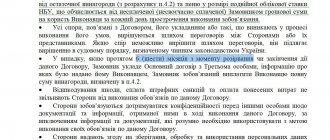In modern Russia, purchasing an apartment under a rental agreement is quite common. The risks borne by both parties are significant (you can read about them in this article). But rental housing is often put up for sale. We tried to figure out how risky such a transaction is, and whether it is worth getting involved with such real estate.
- When is the apartment put up for sale?
- Buying an apartment with purchased rent
- Buying an apartment with fulfilled rent
- General rules for purchasing a rental apartment
What is apartment rent - let's talk in detail
Real estate can be purchased under various forms of agreements. We are talking about purchase and sale, donation or inheritance. In the same series is the option of lifelong maintenance with dependents or lifelong annuity in exchange for housing. What is its meaning? What are the advantages of a lifelong annuity agreement for an apartment for its owner? An elderly person is provided for financially, receives the necessary assistance, and pays with his main property - real estate.
The traditional reason why such deals are most often concluded with lonely old people is the difficulty, sometimes impossibility of their existence without care and decent material support. In our country, the standard of living of the elderly leaves much to be desired. The size of the pension is often quite low, utility bills are constantly rising, and age requires care and medication.
Finding himself in a difficult financial situation, a lonely elderly person can only rely on his own resources. Most often this is home ownership. Many, having learned what rent for an apartment is, decide to find an applicant for their property and enter into an agreement with him. In most cases, this helps to overcome financial instability. The rent paid as a result of the offer of an apartment covers most of the elderly person’s expenses and allows them to live relatively comfortably.
Buying an apartment with purchased rent
In certain situations, rentiers have the right to demand that the payer buy out the annuity, provided that the transaction was formalized as a permanent annuity. The circumstances are given in Art. 593 Civil Code of the Russian Federation:
- annual delay in payments under the contract;
- failure to comply with the requirements of Part 2 of Article 587 of the Civil Code of the Russian Federation on securing a permanent annuity agreement;
- insolvency of the payer, or circumstances from which it follows that the payer is unable to fulfill the terms of the agreement;
- housing is divided between several owners, or has become common property.
Important! The law does not limit the parties to the transaction on the grounds for demanding ransom. The above list may be supplemented by the terms of the contract.
The above conditions are the right of the recipient, not the annuity payer. Moreover, based on the above conditions, the rentier may demand termination of the transaction. We wrote more about this here.
The buyer of an apartment with purchased rent must understand that this is not the purchase of an apartment under a rental agreement - the risks in this situation are different, so you will need to carefully study the rental agreement (it is legally binding for the seller and must be provided upon the buyer’s first request). Legal support of the transaction will also be required, especially in difficult circumstances.
Svetlana O. entered into an annuity agreement with her grandmother. After 5.5 years, the woman decided to buy a new apartment and move her grandmother to live with her, and sell the rent recipient’s old apartment. The woman turned to a lawyer, who drew up a complex agreement, the subject of which was the purchase of rent and the sale of housing.
When purchasing an apartment with a purchased rent, neither the buyer nor the seller bears increased risks associated with the peculiarity of the form of the seller's right. Provided that the purchase and sale agreement is prepared correctly, the execution of the transaction does not cause complications. Read more about buying and selling housing here.
Let's clarify the concepts
What is the difference between life annuity contracts and so-called life support with dependency contracts? By concluding the first of them, an elderly apartment owner can count on receiving the agreed amount monthly. The second case involves the other party fulfilling the obligation of full maintenance, physical care and provision of an elderly helpless person with everything he needs. What is the rent for the apartment in this case? Anyone who has entered into such an agreement with an old man will have to buy food and clothing, repair and clean the apartment, pay for housing and communal services, purchase medicines and pay for hospital treatment if necessary. As well as daily care (either independently or with the help of a nurse) and, finally, organizing and paying for the funeral procedure.
For some people, participation in the life of an elderly person with financial assistance is the only opportunity to solve a difficult housing issue in the future. The parties find each other through word of mouth or through relatives, sometimes thanks to social security authorities. Both want to know who they are dealing with. A rent agreement for an apartment between relatives is not always concluded. More often - with good acquaintances, trusted closest neighbors, former colleagues.
Suppose they find each other - an elderly person who is “ripe” to transfer real estate in exchange for care and maintenance until his death, and one who can take on all such responsibilities in exchange for an apartment. What steps will be required from the parties to properly formalize their relationship?
Be prudent
A variety of situations can occur in life. Let’s say that at the time of preparation and signing of the contract, the health of an elderly person in general was not satisfactory, but later his condition seriously deteriorated. But the services of a nurse and the provision of medicines were not provided for in the annuity agreement.
Another case. The one who acts as the payer suddenly dies before receiving the desired property. Who inherits this agreement? His text says nothing about this.
It will be better if you provide for all theoretically possible situations. That is why, having decided on such a transaction, you should definitely involve a lawyer in the matter. With his wealth of experience, he will explain the pros and cons of future apartment rent for each party. The specialist will be able to provide the maximum range of measures to protect the elderly property owner in the event that the payer suddenly behaves in bad faith. On the other hand, mistakes are also possible from the homeowner. Then a legally competent document will remove possible risks for the other party.
Under what conditions can the contract be terminated?
Both annuity and maintenance during life, formalized in the form of officially concluded agreements, can be canceled only by mutual agreement of both parties or in court. A transaction can be declared void only on two grounds. These include the failure to fulfill the specified conditions or the recognition of the apartment owner as incompetent at the time of signing the document.
If its points are observed and the elderly person entered into a transaction while being officially sane, then recognizing such an agreement as invalid from a legal point of view is almost impossible. If the annuity recipient has seriously justified claims regarding the fulfillment of the prescribed conditions, which can be proven in a courtroom, such a transaction may be terminated.
Practice shows that there are many such situations. Lawyers attribute this occasionally to fraud on the part of elderly former owners, but most often to the cessation of actual support and care on the part of the new owner.
Lifetime rent for an apartment: possible problems
People are accustomed to treating such agreements with caution, and for good reason. After all, the real estate market is full of scammers. That is why the parties to such transactions most often become only well-known people. But lawyers reassure that the conditions and guarantees of protection can be spelled out in the contract itself and supported by its notarization.
At its core, this transaction implies that the new owner does not have the opportunity to sell or take away his home from the old man or move in there (unless this is specifically agreed upon). He cannot refuse the responsibility to support the ward.
Still, risks are possible for both sides. One of them is the elderly person’s incorrect choice of a contractual partner. Trust and a legally correct document are not enough here. An older person may be sympathetic to the other side, turning a blind eye to some manifestations of forgetfulness and lack of commitment, but end up with a regular violation of the terms of the deal.
The opposite situation is when the partner’s character is not to the old man’s taste, and he painstakingly looks for the smallest flaws in the performance of his agreed upon duties. Over time, both learn about the lifelong rent of an apartment that this is not such a simple matter. Unfortunately, the “nothing personal” formula doesn’t work in this case. Each of the parties will have to think hard and decide whether you will be able to maintain a relationship with your chosen partner for many years.
General rules for purchasing a rental apartment
Regardless of whether the annuity was purchased or executed, there are a number of “universal” and general rules for the buyer, since it is he who bears all the risks associated with this transaction. If the apartment is rented (or was rented), you need to:
- study the rental agreement directly;
- familiarize yourself with the list of potential heirs (read about disputes with heirs here);
- establish how long the annuity agreement was executed;
- try to find out the circumstances and cause of death of the rentier if the annuity agreement is executed;
- discuss the situation with the annuity recipient if we are talking about a buyout transaction.
Naturally, the buyer is not able to independently assess potential risks. Therefore, when purchasing an apartment that was (or was) pledged under a rental agreement, you must definitely consult a lawyer.
There is little a realtor can do in this situation. Despite the fact that he is a professional in the real estate market, a realtor will not be able to assess the legal consequences of certain circumstances. And he certainly does not have the necessary judicial practice.
Due to frequent updates to legislation and the legal uniqueness of each situation, we recommend obtaining a free telephone consultation with a lawyer. You can ask your question by calling the hotline number 8 (800) 555-40-36 or write it in the form below.
Other risks
The risk also lies in a possible incorrect assessment of the elderly person’s partner’s own financial and physical capabilities. It is possible that this (lifelong apartment rent) is an unbearable burden for the payer. After all, the costs of servicing and maintaining an elderly sick person will increase from year to year.
Another risk is that the rent payer may not wait for the apartment. Sometimes old people outlive their partners one by one. In this case, the agreement must stipulate who is responsible for the rent of the apartment after the death of the payer - with the transfer of all previous rights and obligations.
One of the possible risks for an elderly person is that the new owners may require him to be moved. If the refusal of possible moves is fixed in the contract, this action refers to a violation of its terms, which gives the elderly person the right to go to court. The main thing is that the rent of the apartment with lifelong residence must be registered.
What does the payer usually risk? An elderly person, a couple of years after signing the contract, may suddenly want to terminate it unilaterally. Lawyers point out that if the payer carefully fulfills all the prescribed conditions, this is impossible. That is, the annuity recipient in this case does not have the right to change his mind and terminate the transaction, guided only by his own desire.
Pitfalls of annuity
Yes, when you simply buy an apartment, you can move into it immediately after receiving ownership. With rent everything is more complicated. You can pay money for several years, look after the rent recipient, but still not receive living space even after his death.
Annuity contract transactions are considered high-risk. It happens that the rent recipient (the owner of the apartment) terminates the contract. Most often this happens with a lifelong maintenance agreement, when it turns out to be natural, says Akhmetshin.
Question answer
How much do the cheapest and most expensive one-room apartments in Moscow cost?
“Some renters forget to document all actions properly. As a result, the rentee himself (or with the help of “good” people) can challenge the contract due to the renter’s failure to fulfill his obligations,” adds Dmitry Shchegelsky, president of the St. Petersburg Chamber of Real Estate .
According to Alexey Ivanov, an expert in judicial arbitration practice and mediation , there is even such fraud when old people accuse the payer of failure to fulfill their obligations and demand termination of the contract through the court. Or mental illness is imitated, and relatives refer to the incapacity of the owner who signed the contract.
Yes, the heirs of the “lonely” apartment owner often challenge the rent agreement. “I doubt that the heirs will be happy with the fact that their inheritance, which they had long ago signed among themselves, is suddenly going to “some stranger.” Thus, the option in which you end up without an apartment and without money is quite possible,” warns Tolmachev.
“As for the benefits of receiving an apartment under a rental agreement. Here, due to the nature of the transaction itself, everything is so individual that no average calculations will give absolutely anything. In the case of a lifelong annuity established for the period of a citizen’s life, well, who knows, maybe Grandma Glasha will outlive everyone? We should also not forget that the annuity payer’s inheritance includes the obligation to pay the annuity. That is, maybe your children will have to pay Baba Glasha after you,” the expert adds.
What documents should be checked from the owner when purchasing a home? More details
Who will outwit whom?
Lawyers note that cases of fraud occur both on the part of payers and on the part of grandparents, who are capable, under any plausible pretext, of provoking a partner to deviate from the formal fulfillment of the terms of the contract, on the basis of which they then try to terminate the deal. They may refuse money or create obstacles in paying for housing and communal services. Then in court they say that they have not seen any money for a couple of months. If the court considers their claims to be justified, then the old man’s property rights can be returned, but no one will compensate the carer for the previously contributed funds.
To prevent such sad circumstances, lawyers usually advise payers to immediately create a special journal in which to enter all receipts and receipts confirming the amounts spent and transferred. If an old man receives money in cash, it is necessary that he signs for it every time. This document can play a very important role in a possible trial.
And yet, the most common situation is when the rent payer gradually ceases to fulfill his duties. Here the advice to the old man seems clear - go to court and terminate the rental agreement for the apartment with lifelong maintenance.
When is the apartment put up for sale?
The concluded rental agreement between the payer and the recipient of the rent assumes that the apartment (other real estate) becomes the property of the payer. But housing is subject to a burden in the form of rent (you can learn more about this from this material). Real estate acts as collateral for a rental agreement.
The payer can dispose of his ownership right to the apartment from the very moment this right arises. But if we don’t consider outright fraud (we’ll talk about it below), selling an apartment is possible if:
- the new owner agrees to fulfill the rent agreement, and the rentier has no claims in this regard;
- the payer bought the rent;
- The rentier died.
It doesn’t make much sense to consider the first option, since few annuity recipients agree to change the payer, and buyers prefer to stay away from such transactions. But if there is a desire to get involved in such an adventure, a lawyer will talk about its intricacies as part of a consultation and only after studying the specific circumstances of the case.
Important! In some situations, the sale of housing does not in any way affect the rights and obligations of the rent payer and rent recipient.
As for the redemption and execution of the annuity, we will consider them in a little more detail.
The heirs are not asleep
Problems may also arise from relatives. After the death of an elderly annuitant, the latter very often try to get the transaction terminated, citing the latter's alleged incapacity. It is in this case that the above-mentioned certificate from a psychoneurological dispensary will come in handy. In the absence of this, a procedure for a comprehensive examination of a psychological and psychiatric nature, carried out posthumously, based on documents and testimony, is theoretically possible. But this process is very complicated, expensive and sometimes does not bring any results.
Provided the text of the contract is correctly drafted, all risks are eliminated, with the exception of possible non-fulfillment of individual clauses of the “contract”. Problems arise when, for example, the mandatory indexation of wages due to inflation is not mentioned or an important point about hiring a caregiver in case of illness is omitted. If a specific method and deadline for payment of sums of money is not specified in the document, the old man may receive them haphazardly, from time to time. As a result, there is practically no talk of improving his financial situation, and he no longer owns his home. Therefore, we repeat once again - the services of a lawyer will be required by both parties before the transaction is concluded, and not after problems arise.
No money, no apartment
Against the background of all the above advantages for both parties to the annuity agreement, the disadvantages of such an agreement look especially clear. First of all, let's talk about the risks that may await the rent payer.
The “rentier” can terminate the contract without any particular difficulty if it discovers that the rent payer does not comply with certain clauses of the agreement. This can happen at any stage, and the costs incurred are not returned to the rent payer. All this is spelled out in the Civil Code, so there is always a risk for the payer to transfer due payments for many years and take care of the “rentier”, and in the end end up with nothing.
Such precedents have happened many times. For example, last year in Moscow, the Simonovsky District Court sided with an 82-year-old pensioner in a dispute between her and a woman, her friend, who had been her dependent for 13 years under an annuity agreement with lifelong maintenance. All these years, she received from the rent payer everything that was specified in the contract - care, food, clothing, monthly rent payments. But another point of the agreement was to carry out repairs in the pensioner’s apartment. And the payer did not have the money for this, which the old woman took advantage of to undo all 13 years of efforts of her friend. The court sent the decision to the Rosreestr department for reverse re-registration of the apartment.
Another danger for the rent payer is the sudden appearance of relatives of the “rentier”, who for decades before his death could not have worried about his existence.
“Such cases are not uncommon when relatives who did not want to see or know an elderly, infirm person suddenly immediately show up as soon as he dies and claim their rights to housing,” says Mikhail Kulikov, head of the secondary market department at Inkom-Real Estate.
An example from the recent practice of M. Kulikov. A woman renter cared for an elderly, frail grandmother for more than 10 years. After her death, the granddaughter suddenly appears, who all these years had nothing to do with the old woman, and starts a legal dispute with the renter.
“The granddaughter’s claims boil down to the fact that, in fact, the granddaughter did not sign any agreement, and all this is deception and forgery. The proceedings were long, and during the process it was necessary to involve a notary who certified the contract. The notary confirmed the legal capacity and goodwill of the parties to the transaction. But this did not convince the judges, who sent the contract for a handwriting examination, and now the parties are awaiting a conclusion,” said Mikhail Kulikov.
Generally speaking, the “statistics” of such proceedings with relatives after the death of a “rentier” are disappointing. “The maintenance of the rent recipient is calculated as a multiple of the minimum wage, which attracts those who want to purchase an apartment, especially in Moscow, much cheaper than with a direct purchase,” explains Alexey Bernadsky, head of the network of real estate offices Est-a-Tet, “But the problem is that after the death of the annuity recipient, such agreements are disputed by relatives in 90 percent of cases. Any arguments can be used: failure by the renter to fulfill all the terms of the contract, the insanity of the rent recipient, etc. Here, the reason for doubting the validity of the contract can be anything, even serious illnesses of a non-mental nature, such as cancer or diabetes. diabetes,” warns Alexey Bernadsky.
Thus, the rent payer should be extremely careful about having evidence of the proper fulfillment of his obligations: keep all receipts, if possible, attract witnesses to the proper care of the rent recipient (for example, neighbors), who, if something happens, could confirm his good faith, etc. d.
Additional details
Now let's touch in more detail on the features of such agreements and some important legal points. What points of the document are considered mandatory? There are only two of them: an indication of the alienated property with detailed characteristics of this particular apartment and a definition of the recipient’s obligations. We have already discussed the need for a detailed decoding of the second point.
The recipient can be either a citizen (individual) or a non-profit organization. The payer can also be a person, either an individual or a legal entity. There is no clear definition of the parties to the transaction in the legislation. The mandatory written form of concluding an annuity agreement is regulated by Article 584 of the Civil Code of the Russian Federation, as well as its notarization. If this condition is not met, any court will declare such a transaction invalid.
If participants are individuals, their passport details must be indicated in the documents. If these are commercial or other organizations, you will need to provide the information contained in the constituent documents with registration addresses. All data with a detailed description of the property being alienated must also be listed in detail. A special point is not only the duties, but also the responsibility of each party in case of late payments. A lifelong rent agreement for an apartment must be signed by all participants.
Life threatening
The “rentier” in such a transaction also bears its own risks, and very significant ones. The biggest risk is a direct danger to life, without any exaggeration.
“The annuity recipient should be clearly aware that he is, with all objectivity, creating a situation where his death is an extremely desirable phenomenon for the second party to the contract. And he can inevitably become a “bait” for people with criminal intentions,” explains Vadim Lamin. For example, at the beginning of this year in Moscow, a whole gang of “black realtors” and its leader Vitaly Studenikin were tried. The gang “specialized” in taking away apartments from elderly people precisely through rent agreements.
“The transfer of real estate under a rental agreement is an extremely complex, unpredictable and potentially dangerous operation, one of the most difficult in the real estate market,” says Mikhail Kulikov.
“Back in the 90s, this practice was very common, and it has survived to this day. Until now, this is a highly criminalized segment, since people are often simply forced to alienate their rights to rent,” says Alexey Bernadsky from Est-a-Tet.
In order to protect themselves as much as possible from these risks, it is highly advisable for a potential “rentier”, an elderly person who has decided to ensure a prosperous old age for himself in this way, to literally write down all the details in the contract “down to the decimal point”, to indicate in detail all the conditions for the implementation of the agreement. This is especially true for dependent annuity, which involves care, help with housework, etc.
“In my practice, there was a case when the responsibilities of the renter included the annual sending of the “rentier” on vacation to a good sanatorium. Another example, already slightly curious: the contract provided not only for caring for the old woman, but also for her cat, also very elderly - a monthly veterinary examination with all the tests. There can be any number of options,” says Mikhail Kulikov.
There can be no question of concluding an annuity agreement with random people. It is highly advisable to involve third parties who cannot claim the apartment, but could monitor the situation.
“It is advisable to transfer the money that is paid under the annuity agreement to an account, rather than hand it over in cash. And this condition must also be stated in the contract. The payments themselves can be made at any frequency, but this must also be stipulated in the contract,” real estate experts advise. Of course, it is impossible to fix the total amount of payments in advance, since the maintenance is assumed to be for life, but this already refers to the objective risks of the renter.
What documents are needed
The list of papers that will be required may vary. Let's look at the main ones that you can't do without. These include an explication of the housing property subject to alienation with a floor plan. You can order it from the BTI by submitting the appropriate application and paying for this service. You will need a number of certificates from the MFC: personal account, extract from the house register. In addition to the personal identification documents of the parties, you will also need a cadastral passport for the mentioned housing and a certificate of its estimated value.
If one of the parties acts through a representative, that representative, in addition to his own passport, must present a power of attorney for the right to conduct the transaction. The documents of title to alienated property have already been mentioned above, as well as the grounds for the initial emergence of such rights (for example, a deed of gift, a will or a sales contract). As already mentioned, a certificate of legal capacity from a medical institution will not hurt. Another mandatory document is a certificate confirming the absence of encumbrances or financial debts of the object from the Unified State Register and a receipt for payment of the state duty for the certification procedure. Attached to the package are three copies of the rental agreement itself.
Buying an apartment with fulfilled rent
The situation is much more complicated if the rent has been fulfilled - buying an apartment in such a situation is associated with a number of risks. But let's look at the issue in order.
Execution of the annuity means compliance by the payer with all the terms of the transaction until the death of the rentier. Actually, it is the death of the payee that is the execution of the annuity. And it is precisely this moment that is considered the “most delicate” and especially risky for the buyer. Risks are mainly associated with the presence of heirs to the rentier and their interest in returning the housing for inclusion in the inheritance estate:
- challenging the annuity agreement due to circumstances such as the incapacity of the rentier when concluding the agreement, signing documents under pressure or threats, and other reasons for challenging transactions;
- challenging the annuity agreement due to the intentional death of the recipient by the payer.
Important! The legislation does not directly provide for provisions on the consequences of the payer killing the recipient. In this situation, legal norms are applied by analogy.
What's the result? A conscientious buyer of an apartment with fulfilled rent may have problems with his heirs, that is, the apartment will be taken away from him, and no one will rush to return the money. And here we can only give general recommendations:
- verify the actual death of the payer - request a death certificate and check its authenticity;
- make sure that the encumbrance has been lifted in Rosreestr - the law allows you to remove the deposit even when registering a purchase and sale agreement, but this is another reason to think that there is something “wrong” in the situation;
- wait at least 3 years from the date of death of the rentier (expiration of the statute of limitations).
But the best way out would be the help of a lawyer at all stages of the transaction.
How much might it cost to draw up such an agreement?
Regardless of whether the rent of the apartment is entrusted to a relative or a stranger, the participants will have to pay a certain amount of money for the transfer of the alienated property. As stated in Chapter No. 30 of the Civil Code of the Russian Federation, a citizen (individual) contributes it in the amount of 2000 rubles. For a legal entity it is much higher - 22,000 rubles. Registration of such an agreement with a notary requires the payment of a fee, the amount of which depends on the value of the alienated property in the amount of 0.5%. The upper and lower limits of this amount are limited respectively to the figures of 20,000 rubles. and 300 rubles, as specified in the relevant article of the Civil Code.








